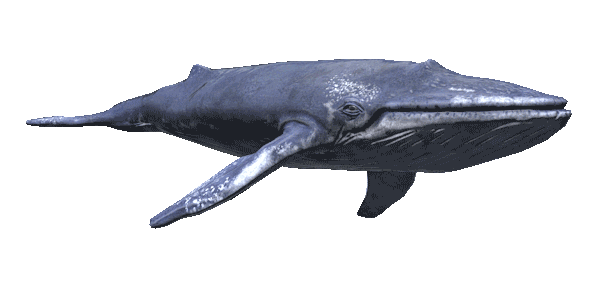Our Climate Response
At PSA, we believe that taking climate action is our responsibility. We are committed to achieving 50% reduction of our absolute Scope 1 and 2 carbon emissions by 2030 (against 2019 baseline year) and working towards net-zero carbon emissions by 2050.
In 2022, we published our second Sustainability Report, titled ‘Green Horizons: Collaborating for Change’. The Group’s Sustainability Strategy Framework provides a roadmap of our ambition to drive sustainable value creation through three strategic priorities: Taking Climate Action; Transforming Supply Chains; and Nurturing a Future-Ready Workforce.
TAKING CLIMATE ACTION
PSA is reducing Scope 1 and Scope 2 emissions through several carbon abatement pathways including energy efficiency improvements, electrification, and investments in new energy pathways.
In line with our commitment to voluntarily disclose Greenhouse Gas (GHG) emissions, PSA Singapore and PSA Marine received their ISO 14064-1:2018 verification statements following rigorous audits.
2022 also saw the official opening of Tuas Port, a next-generation port with automated equipment and integrated operations systems. Battery-powered Automated Guided Vehicles (AGVs) support yard and wharf operations, reducing carbon emissions by 50% compared to conventional diesel prime movers.
To optimise energy use in port operations, PSA Singapore is developing smart grid solutions and battery energy storage systems (BESS), starting with a 2MW/2MWh BESS which will be scaled up in future by reusing retired batteries from AGVs and electric prime movers (ePMs). Concurrently, its solar photovoltaic systems will be expanded to achieve total solar energy system capacity of 9.41 MWp by 2023.
PSA Singapore’s first Super Low Energy Building, the Maintenance Base Administrative Building in Tuas Port, uses 58% less energy annually, compared to other similar-sized buildings. PSA Horizons, our headquarters, was certified carbon neutral for the second year in 2022. The building adopts smart green technologies and Renewable Energy Certificates to offset residual carbon. Both buildings have achieved the Green Mark Platinum award.
Aligned with our goal towards using greener fuels for terminal vehicles, PSA Singapore embarked on a proof-of-concept with the development of a hydrogen refueling ecosystem and refueling standards. The project is expected to be completed in 2024.
Separately, in support of Singapore’s ratification of the Kigali Amendment, the terminal is also working with industry stakeholders to reclaim and reuse reefer refrigerants, which help our partners reduce their GHG emissions.
Over in Europe, PSA Antwerp in Belgium has embarked on key initiatives to reduce carbon emissions, including ordering 14 new electric automated stacking cranes for its Europa Terminal. PSA Antwerp has also partnered with its joint ventures MSC PSA European Terminal (MPET) and Antwerp Terminal Services (ATS) to test and scale up use of green straddle carriers that are powered by alternative energy sources including hydrogen, battery and biofuel. Moreover, a collaborative trial involving PSA Sines in Portugal, Baltic Hub in Poland and Mersin International Port (MIP) in Türkiye is testing out ePMs from various manufacturers.
In Northeast Asia, Guangzhou Container Terminal and Tianjin Port Pacific International Container Terminal have replaced 20 and 50 of their diesel prime movers, respectively, as part of their equipment electrification program. Additionally, plans are underway to replace their entire fleet in the coming years. The renewal translates to an estimated reduction in carbon footprint of more than 6,500 tonnes annually. In light of increasing demand for renewable energy generation, PSA China, China Energy and Envision Energy have established a joint venture company, Guohua Envision PSA Renewable Energy, to explore opportunities in distributed renewable energy projects and smart energy systems.
In the Middle East South Asia region, our business units (BUs) continued to explore the introduction of renewable energy sources via Open Access to power their operations. PSA Mumbai commenced operations of a 1-megawatt ground-mounted solar farm which, together with previously installed rooftop solar panels, is generating 13% of its annual power requirements and reducing carbon emissions by over 1,200 tonnes annually.
Across PSA, BUs such as PSA Singapore, PSA Halifax, PSA Mumbai and PSA Chennai are transitioning from diesel-powered yard cranes to electric or diesel-electric hybrid yard cranes. This will effectively reduce our carbon footprint as an electric or hybrid Rubber Tyre Gantry (RTG) cranes deliver 50% or more fuel savings, compared to a diesel RTG. PSA has committed to only purchasing electric or hybrid RTGs from 2023, with a goal of having 90% of electric or hybrid RTGs by 2030.
COLLABORATING TO DECARBONISE VALUE CHAINS
Collaboration amongst stakeholders is key to decarbonising logistics supply chains.
In 2022, PSA joined a consortium of global organisations, led by Smart Freight Centre, to co-develop an actionable guidance for companies to track GHG emissions on a granular operational level, end-to-end across supply chains. This enhanced industry collaboration and support for businesses to implement decarbonisation strategies will advance the logistics industry’s journey to net-zero emissions.
Green corridors support demonstrations and pilots of sustainable shipping technologies, which can catalyse and scale to become industry-wide solutions to enable zero-emission shipping. To support more sustainable shipping, PSA International joined the Maritime Port Authority of Singapore and Port of Rotterdam Authority as an Action Partner to establish the world’s longest Green and Digital Corridor. An inaugural workshop to define the goals of the proposed Corridor and its related initiatives was organised to kick off this partnership.
PSA Singapore joined ‘The Silk Alliance’, a cross supply-chain maritime partnership initiated by Lloyd’s Register Maritime Decarbonisation Hub and 12 other industry leaders, to develop a fleet-specific fuel transition strategy for the intra-Asia container trade, based on the Hub’s First Movers Framework.
PSA continued to participate actively in the World Economic Forum’s (WEF) initiatives, including:
- WEF Supply Chain & Transport Industry Action Group – chaired by PSA Group CEO Tan Chong Meng, this group of global supply chain and transport CEOs focuses on overcoming systemic supply chain challenges through collective action and sustainable transition to accelerate resiliency and trust-building.
- WEF First Mover Coalition’s Infrastructure Pillar – PSA is an inaugural partner with industry and public sector leaders in this global initiative to drive infrastructure-related projects to accelerate clean energy technologies adoption. The FMC aims to harness the purchasing power of companies to decarbonise ‘hard to abate’ industrial sectors.
- WEF Stakeholder Capitalism Metrics initiative – PSA joined this community of over 100 companies to establish a globally consistent and comprehensive environmental, social and governance reporting standard.
PSA is also actively involved in other industry initiatives which are aimed at driving sustainable change and reducing emissions in the logistics and transport sectors. These include the Global Shipping Business Network, Global Maritime Forum, Carbon Pricing Leadership Coalition Singapore, and the Coalition for the Energy of Tomorrow.
INCULCATING A CLIMATE-CONSCIOUS CULTURE
PSA developed the e-learning program ‘Greenfish Climate Action – Towards a Sustainable Future’ to raise employee awareness of global and industry-specific sustainability issues, as well as the role that individuals can play to combat climate change. The program had reached more than 5,000 employees globally as at end 2022.
Employees across the Group participated enthusiastically in PSA’s annual Go Green campaign. Echoing our 2021 Sustainability Report theme, ‘Collaborating for Change’, BUs across the regions joined hands and involved local partners to promote sustainable practices throughout 2022.
During the campaign period, PSA in Singapore, Eastern Sea Laem Chabang Terminal in Thailand, PSA Antwerp, MPET and ATS in Belgium, MIP, International Trade Logistics in Argentina, and Saudi Global Ports partnered with their local communities to plant trees or landscape their surroundings. PSA Marine in Singapore developed a sustainable hydroponics farm, Gerické, which uses smart technologies to grow vegetables. New Priok Container Terminal 1 in Indonesia, SP-PSA International Port in Vietnam, PSA Sines, Baltic Hub, MIP, LYG-PSA Container Terminal in China and PSA Sical in India organised litter-clearing activities at their local beaches, playgrounds and terminal surroundings.
Extending climate advocacy beyond the port, MIP joined the Blue Climate Ambassadors Project in 2022 to combat climate change in Türkiye. Appointed as Blue Climate Ambassadors, three female MIP employees led awareness activities and business solutions development for zero waste and climate change mitigation.
OUR COMMITMENT TO SUSTAINABILITY
At PSA, we share a common vision and purpose to operate sustainably and deliver lasting value to our customers, communities and the environment. Our continued commitment and collective efforts, supported by close collaborations with our stakeholders, will position us to achieve positive impact for the greater good.





























